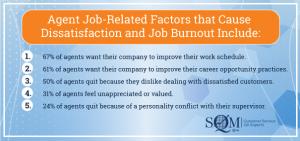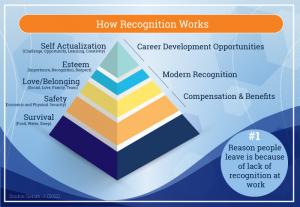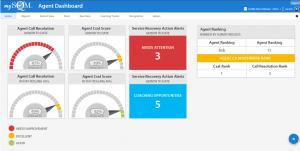How to Keep Call Center Agents Motivated While Working from Home
To continue savoring the perks of working from home, call center agents must also learn how to navigate the difficulties effectively.
VERNON, BC, CANADA, October 12, 2023 /EINPresswire.com/ --When COVID-19 first forced almost everyone to work from home, most people were quite content. Unlimited access to snacks, comfy clothes all day, no more commuting, and the list goes on. But as this "temporary" measure dragged on, working from home became more of a permanent reality, and the shine of it quickly wore off.
The truth is that working from home can work well, but it comes with challenges. Distractions, isolation, unbalanced work-life, and burnout are just a few of the issues WFH call center agents face. And if call center agents want to continue savoring the perks of working from home, they must also learn how to navigate the difficulties effectively.
This blog aims to educate managers or supervisors on several techniques and tips that can help motivate agents to work more productively from home. It will focus on recreating aspects of the job lost when agents move from working in the office to at home, such as relationship-building and work-life balance.
1. Pay Attention to Agents' Mental Health
Mental health and productivity go hand in hand. If an agent's mental health declines, so will their productivity and motivation. So, keep an eye out for any changes in an agent's behavior to detect early signs of mental health issues to be proactive rather than reactive in the response.
Here is a list of common signs that a call center agent is experiencing mental health problems:
Common Signs that a Call Center Agent is Experiencing Mental Health Problems
1. Changes in Behavior
Notice any significant changes in the agent's behavior, such as increased irritability, mood swings, or withdrawal from team activities.
2. Performance Decline
Monitor performance metrics like call quality, productivity, and adherence to schedules. A noticeable drop in performance may indicate mental health issues affecting their work.
3. Attendance and Punctuality
Frequent absenteeism, tardiness, or unexplained leave requests can indicate underlying mental health concerns.
4. Communication Patterns
Pay attention to communication patterns. If an agent becomes unresponsive, frequently misses meetings, or avoids interaction with colleagues, it may be a sign of emotional distress.
5. Quality of Interactions
Assess the quality of interactions with customers. A sudden decline in customer satisfaction or an increase in customer complaints may signal a problem.
6. Self-Reporting
Encourage open communication and create a supportive environment where agents feel comfortable discussing their mental health concerns. They may voluntarily disclose their challenges.
7. Inability to Focus
Agents experiencing mental health issues may struggle to concentrate, leading to more errors or difficulties handling customer interactions.
8. Disorganization
Notice if an agent becomes increasingly disorganized, misses deadlines, or has difficulty managing tasks.
Maintaining good mental health is crucial for motivation and for preventing burnout. According to SQM Groups' research, 88% of call center professionals completely (63%) or somewhat (25%) agree that burnout is one of the biggest challenges for the industry.
The call center industry's average annual agent turnover rate is 38%. That is a substantial number, and it dramatically impacts customer satisfaction. Having a consistently high number of new agents means that when a customer calls, there is a high likelihood that the agent will be unable to resolve their call on the first contact due to a lack of experience and skills.
It is unsurprising that agents get job burnout when over a third of customers call to resolve an issue not resolved on a previous call, and 14% of calls are considered complaint calls. This puts a considerable strain on an agent mentally and emotionally, leading to job burnout.
Often, the top-performing agents – the most talented and effective employees – suffer the most from burnout. Burnout and job dissatisfaction can be prevented by keeping an eye out for signs of a decline in agents' mental health and taking measures to combat these proactively.
One of the ways to provide support to agents and reduce the mental strain of the job is to provide opportunities to connect with their co-workers. Social support in the workplace is essential, and working from home has made this one of the biggest challenges.
2. Create Opportunities for Relationship Building
When working in the office, agents socialize with each other naturally, whether that means making small talk while making morning coffee or chatting with the next door agent in between calls. Social connections contribute to mental and emotional well-being and are fundamental to our overall health and happiness.
When working from home, social connections can be minimal. One won't casually bump into a co-worker while making tea or pass by the secretary on the way in. These interactions must be scheduled and intentionally carved into the day.
Supervisors and managers are responsible for encouraging and enabling social interactions among their team members. This can look like having an end-of-day meeting with the team and asking everyone to share their favorite moment of the workday or perhaps having monthly luncheons where agents can connect with each other.
One of SQM’s clients has an exceptionally high retention rate of 11 years. Compared to the industry average of 3 years, this is extraordinary. When asked what the secret behind this number was, the SVP simply replied, “Friendship.” Rather than working fully remotely, their agents work in a hybrid model to facilitate closer bonds and friendships. Above all, they have prioritized relationship building and it has made a world of a difference.
No matter how space is created to enable relationship building, doing so will foster a more positive work environment and increase agent collaboration and job satisfaction. As a result, this will decrease agent job burnout and reduce the overall call center turnover rate.
3. Prioritize Recognition and Growth
Recognition acknowledges call center agents' hard work and achievements, boosting their morale and job satisfaction. In a high-pressure environment like a call center, recognizing and appreciating employees' efforts can significantly enhance motivation, reduce turnover rates, and improve employee retention.
Fostering growth opportunities within the call center not only aids in employee development but also contributes to the organization's success. When agents have avenues for skill enhancement, career advancement, and personal growth, they become more engaged, perform better, and provide higher-quality customer service.
A great way to recognize agents for their work is to give them access to personalized dashboards. These dashboards are powered by call center analytics, including statistics on call resolution and Csat ranking and providing performance score insights. This allows agents to benchmark their achievements against various KPIs visually.
Many SQM clients use the below customer service QA dashboard or a variation at the agent level because it focuses on the right KPIs, agent Csat ranking, and action alert identification. The beauty of the dashboard is that it provides real-time performance data which empowers, engages and motivates an agent to improve their performance.
4. Be Flexible
One of the main perks of working from home is the flexibility that comes with it. Flexibility is vital to maintaining a good work-life balance so they can be more available for customers when needed. For example, if an agent needs to work a split shift to attend an appointment during the day, let them.
Allowing room for autonomy and flexibility in the schedule is a significant motivating factor for agents. If an organization is too rigid with the schedule, it risks losing its most valuable agents to its competitors. Therefore, figuring out a way that works best for a company to allow agents more control over their schedules is crucial.
For example:
Call centers can adopt a shift bidding system, which allows agents to choose their preferred work hours based on their availability and preferences within operational constraints.
Implement flexible break times and job-sharing arrangements to accommodate agents' needs and responsibilities. An agent could take their break at 3 pm rather than 2 pm so they can pick up their kids from school during that time.
Regularly soliciting agent input through feedback mechanisms and involving them in scheduling decisions fosters a sense of ownership and empowerment. Employing workforce management software to optimize schedules while considering agent preferences and workload ensures efficient operations while providing flexibility.
Remember that when agents work in the office, parts of their day are essentially unproductive. They spend time chatting while refilling their water, joking around with each other, or walking to get a snack. The same goes for agents who work from home.
Being flexible with agents encourages them to have a healthier work-life balance, enhances employee satisfaction, and decreases burnout and turnover rates. Flexibility and autonomy are some of the main perks of working from home, so don't take those away if you want to keep your best agents.
5. Implement Gamification
Games are a fantastic way to boost motivation in the workplace. There's nothing more effective than a bit of competition to spark the drive to get to the top. Gamification provides a sense of belonging and purpose by creating a fun and engaging work environment. It also encourages agents to continuously strive for improvement, which can result in increased productivity and better customer service.
Create a gamified system that rewards agents for achieving specific targets or milestones, such as efficiently handling a certain number of calls or resolving customer issues. These rewards can include points, badges, or even small prizes.
Introduce friendly competition by displaying leaderboards that highlight the top-performing agents. Agents working from home can see their rankings and strive to improve, fostering a sense of achievement and camaraderie within the team.
Mike Desmarais
SQM Group Inc.
+1 778-581-8243
email us here
Visit us on social media:
Facebook
Twitter
LinkedIn
Other
Legal Disclaimer:
EIN Presswire provides this news content "as is" without warranty of any kind. We do not accept any responsibility or liability for the accuracy, content, images, videos, licenses, completeness, legality, or reliability of the information contained in this article. If you have any complaints or copyright issues related to this article, kindly contact the author above.




